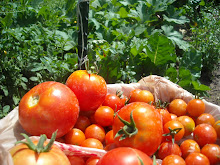
How do dogs celebrate Passover? Do they switch to Kosher-for-Passover dog food and is there such a thing? Are dogs even Jewish? My research into these important questions has taken me to Miss Cleo's site (not THAT Miss Cleo,the one on TV who was arrested for not actually reading your fortune.) This Ms. Cleo has a site for pet supplies including a $95 package for a BARK MITZVAH. It includes: all meat canine Bark Mitzvah cake, happy Bark Mitzvah Hat, Doggie Treat Bag filled with draydel and menorah biscuits, Star Bark Mitzvah collar, and a ribbon balloon cake topper. I believe most of her customers are residents of Boca Raton, Florida.
Reading the ingredients on the bag of dog food in my pantry, I see that my dog is eating pretty well for a non-Jew. However, most of the ingredients will need substitutions. The chicken and egg products must come from kosher chickens that have been humanely killed by rabbis with long black coats and equally long beards. Oatmeal is out and matzoh is in. The whole grain brown rice and millet sound healthy so I'd like to keep them in. But can I?
According to Nachum Mohl, writing for Jewish Magazine:
One of the more noticeable differences between the Ashkenazi (European Jew) and his S'fardi (Arab Country origin Jew) brother is brought to light during the Passover festival. The Ashkenazi Jew does not eat rice or legumes, where as the S'fardi Jew does.
There are five different types of grain from which we must make matzo for the first night of Passover: wheat, oats, barley, rye and spelt. These five types of grains are the types that become chametz if left in contact with water. Eating chametz on Passover is a very serious sin.
Rice and other legumes do not become chametz even though flour made from them may rise; it is not considered chametz. Therefore, according to the Torah, it may be eaten on Passover.
Understanding a wee bit of history may help us out a bit. Somewhere during our long exile the Jews seemed to move in two directions, one was into the Arab lands and the other direction was into the European lands. Approximately one thousand years ago, the Arabs were at their zenith, but the Europeans had not begun their ascent to cultural and financial superiority. The Jews moving from country to country divided into these two groups. This was also during the time of the crusades. The physical boundaries and distances between the two cultures, together with the cultural differences cause the split between the Ashkenazi and S'fardic Jews.
Each group had its group of wise Rabbis that made the decisions and rulings for its local Jewish population. The S'fardic Rabbis did not see rice and legumes as a problem in their milling processes. It was the Ashkenazic Rabbis that saw that in their communities that rice and legumes were becoming a major stumbling block.
The problem is that rice (and legumes) is a grain-type food. It has long been sold and packaged and handled by those factories and middlemen that handle also the wheat and the other grains. It is not uncommon when purchasing a package of rice to find another grain of something else in the package. It is very difficult to mill the rice with out the inclusion of any of the five grains mentioned above since rice is generally milled in mill that are used also for flour. Because of these two reasons, the Ashkenazi Rabbis have forbidden the eating of rice and legumes on Passover. This ban has been accepted by all Ashkenazi Jews.
I think that I've got some options here. Dugus can eat matzoh brie which is basically an omlet made of beaten eggs and matzoh (soak crackers in water until soft and drain) that is fried in butter and topped with a sprinkle of sugar. He can dine at the home of a Sephardic Jew. He can eat Evanger’s Dog and Cat Food Company kosher varieties, which have been endorsed by the Chicago Rabbinical Council. Or I can whip up some chicken and vegetables (no peas) and he can share his dinner with my grandson, Gavin, who has just started to eat meats and vegetables. I think they will both like my cooking better than anything that comes in a jar or can.









1 comment:
Wow, that's pretty hard core. I don't think I ever considered kosher dog food when we had a dog.
Post a Comment